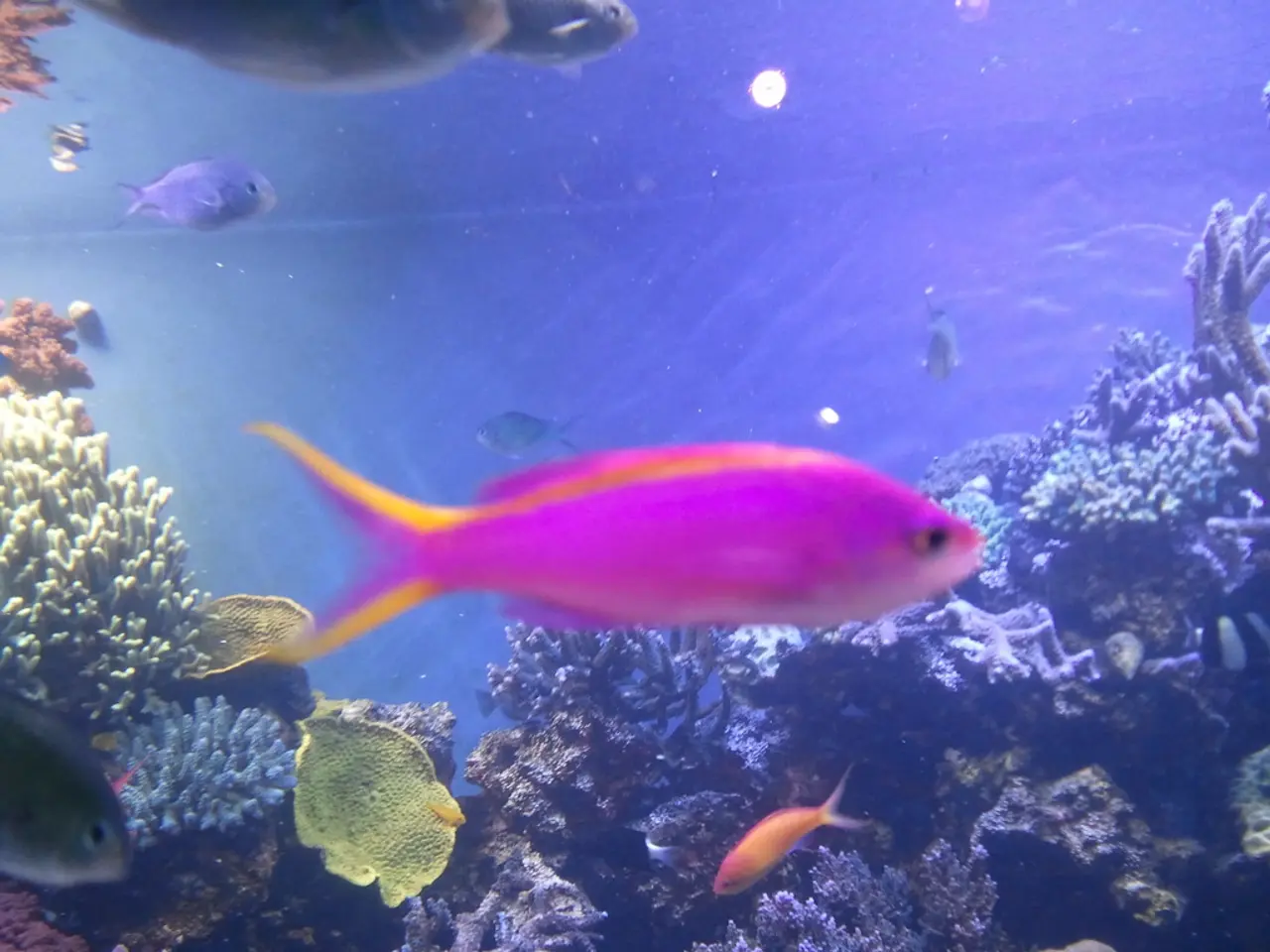Unfulfilled guarantees hinder marine ecosystem preservation
The Derawan Archipelago, nestled within Southeast Asia's Coral Triangle, is a vibrant marine ecosystem teeming with life. From the majestic hammerhead and whale sharks to the humble green and hawksbill turtles, the archipelago is a testament to the region's biodiversity. However, this underwater paradise faces threats that could jeopardize its existence.
The Derawan Islands in Indonesia are under siege from poaching syndicates harvesting turtle eggs, illegal fishers plundering its underwater riches, and the relentless onslaught of plastic waste. This decline serves as a stark reminder of the limits of broad conservation targets and the need for sustained funding for ranger teams, marine patrols, and local partnerships.
International organizations, including environmental NGOs such as WWF and Greenpeace, are directly involved in maritime protection projects to counter further destruction. The European Union also funds projects related to ocean and water health restoration, although specific projects in Derawan were not explicitly mentioned.
The 30x30 initiative, a global endeavour aiming to protect 30% of the ocean by 2030, faces challenges in regions like Derawan. Without adequate monitoring and enforcement, these marine ecosystems will continue to deteriorate. Investment in drones, radar systems, and communication equipment is crucial to bolstering enforcement, while education and sustainable fishing initiatives can address the root causes of poaching, bomb fishing, and other illegal activities.
The Berau Marine Protected Area (MPA), home to Derawan, is officially designated as a protected area. However, limited resources hinder its effective management. A single three-day boat patrol in the Berau MPA costs IDR30 million (US$1,841), while the Ministry of Marine Affairs and Fisheries typically allocates only about IDR200 million annually for its management and protection.
Without national commitment, marine protected areas will remain vulnerable to unchecked exploitation. Derawan serves as an example of policy failure and growing vulnerability. Yet, with the right actions, it could serve as a model for building resilience in a rapidly changing climate.
Global Conservation, an NGO, directly funds marine parks around the world to establish rigorous monitoring and enforcement protocols. Policymakers worldwide must recognize the need for robust policies backed by substantial funding for conservation and enforcement efforts, especially in remote areas rich in biodiversity.
Coral reefs that take centuries to grow can be wiped out in seconds by bomb fishing, jeopardizing livelihoods closely tied to ocean health. The benefits of well-managed MPAs include thriving fish populations, healthy coral reefs, a booming ecotourism industry, and preservation of natural ecosystems.
Derawan, despite its current state, can still change course and become a model for climate resilience. It aligns with the Sustainable Development Goals (SDGs) of Consumption (SDG 12) and Peace (SDG 16). The article is tagged with marine, conservation, and sustainable development.
This article is copyrighted by Project Syndicate in the year 2025. Dadang Mujiono, the Indonesia director at Global Conservation, emphasizes the urgent need for action. With coordinated global action, Derawan could be saved, serving as a beacon of hope for marine conservation efforts worldwide.
Read also:
- Nightly sweat episodes linked to GERD: Crucial insights explained
- Antitussives: List of Examples, Functions, Adverse Reactions, and Additional Details
- Asthma Diagnosis: Exploring FeNO Tests and Related Treatments
- Unfortunate Financial Disarray for a Family from California After an Expensive Emergency Room Visit with Their Burned Infant








